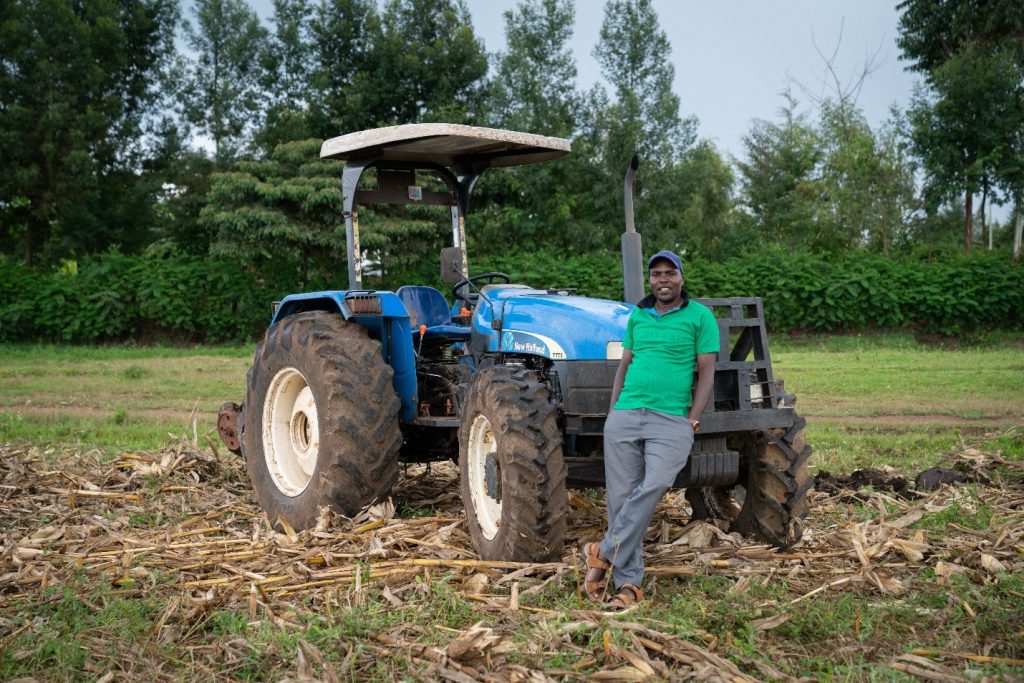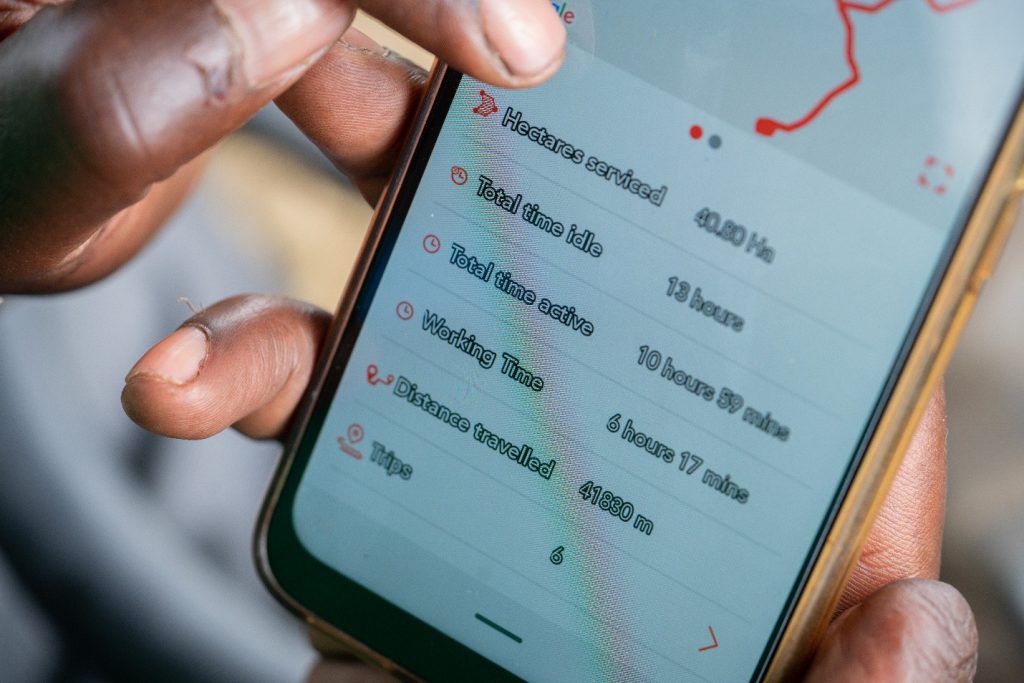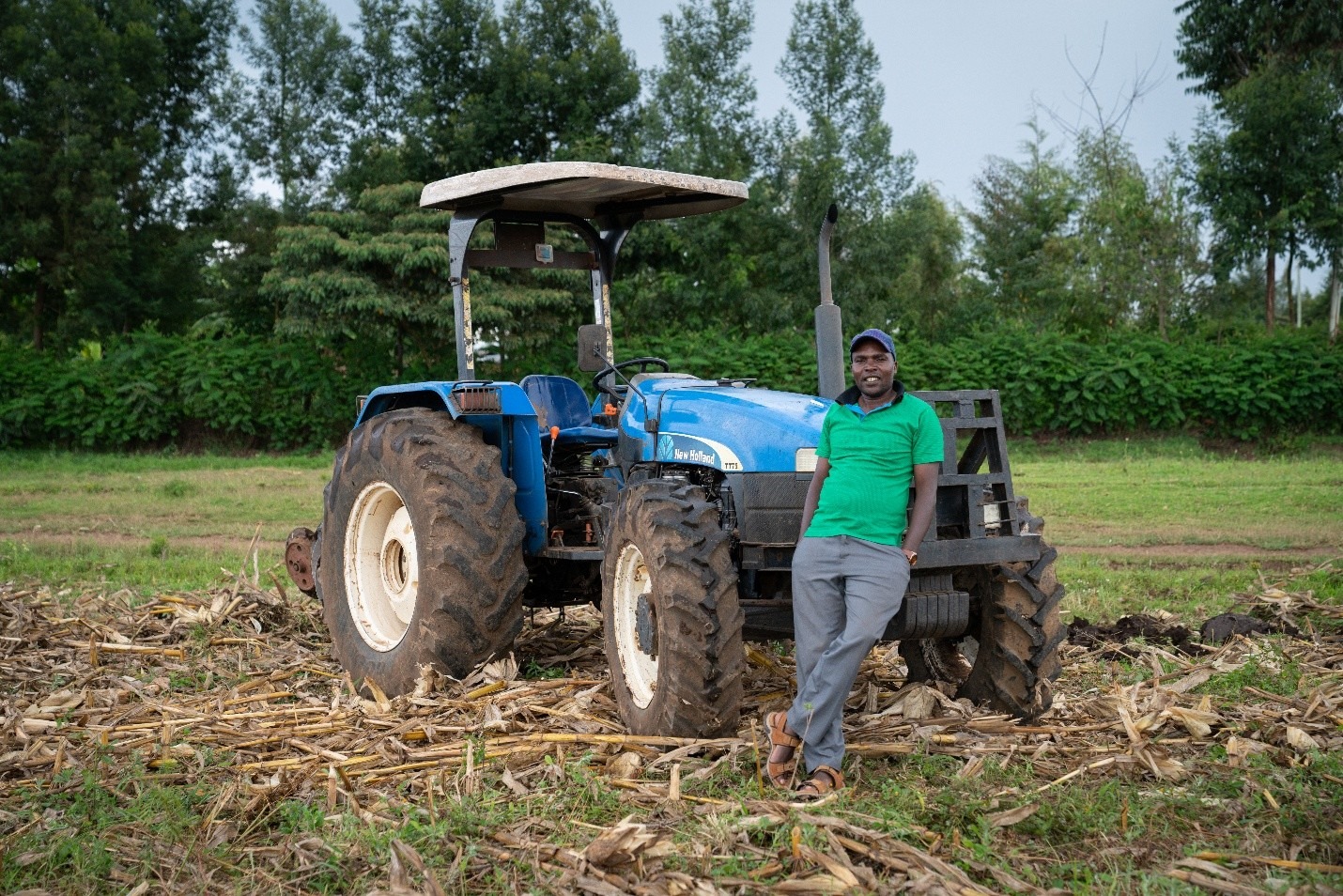Last week, our partner Hello Tractor handed over 10 new tractors to agripreneurs in Ethiopia under their Pay-as-You-Go (PAYG) financing model another milestone in driving access to affordable mechanization across the continent.
As Mercy Corps AgriFin, we celebrate this achievement, having been part of Hello Tractor’s journey since they launched operations in Ethiopia three years ago. At the time, their focus was on building the tractor supply chain by onboarding existing machines. This is where AgriFin stepped in as one of their first strategic partners in the country — investing in the training of booking agents and helping to establish an active operational network.
The impact has been remarkable. Hello Tractor, has since expanded its serviceable land fivefold, servicing over 76,000 hectares, training 350 community-based agents and 180 tractor operators, and onboarding approximately 60,000 farmers, with plans to reach an additional 120,000. Each new tractor represents an opportunity for farmers to boost yields, increase income, and enhance food security across Africa.
At the 2025 African Food Systems Forum (AFSF) in Senegal, discussions on agricultural mechanization took center stage, majorly focusing on how to ensure that Africa’s smallholder farmers, many of whom are women and youth, can benefit equitably from new technologies. Our very own Collins Marita, the technical Director of Strategic Learning at Mercy Corps AgriFin, shared some practical insights in a Q & A panel discussion on how digital innovation, inclusive financing, and public-private partnerships can unlock mechanization for millions of farmers. Read on to catch his insights.
The Barriers: Why Mechanization Still Feels Out of Reach
Mechanization remains a powerful lever for transforming Africa’s agriculture, but for too many farmers, it’s still a distant dream.
“The biggest barriers we see are financial constraints, weak infrastructure, fragmented demand, and persistent gender and policy gaps,” Collins explained.
For many smallholders, the high upfront cost of machinery like tractors, harvesters, and irrigation equipment is prohibitive. Access to credit remains limited, and even where financing exists, collateral requirements lock out women and youth. Beyond money, poor road networks, unreliable energy, and limited access to repair services make it difficult to sustain mechanization in rural areas.
These challenges, Collins noted, require more than isolated solutions that demand collaboration, innovation, and shared accountability.
Innovating for Access: The Rise of Mechanization-as-a-Service
One of the most promising solutions Collins highlighted is Mechanization-as-a-Service (MaaS), a model that allows farmers to pay for machinery use per hour, per acre, or per task.
“MaaS platforms pool demand and match it to available machinery, ensuring that equipment is fully utilized while farmers only pay for what they need,” he shared.
Digital tools are at the heart of this shift. Platforms like Hello Tractor in Kenya and Lersha in Ethiopia are proving that when technology connects farmers, service providers, and financiers, everyone benefits. Through these models, farmers can book machinery via mobile apps, while operators maximize machine usage year-round, reducing costs per acre.

(Courtesy of Hello Tractor)
Financing Innovations: Making Mechanization Affordable
Affordability is key. Collins emphasized that innovative financing models like pay-as-you-use, leasing, and asset-based financing are transforming how farmers access equipment. Partnerships with banks, microfinance institutions, and fintechs are helping tailor credit schemes around agricultural cycles, while risk-sharing facilities lower lender exposure. He added that inclusive financing must be central to any mechanization strategy:
“We have to design models that women and youth can access easily without collateral-heavy requirements.”
Targeted subsidies, credit guarantees for women-led cooperatives, and group leasing models are some of the approaches helping to bridge the gap.
Inclusive Mechanization: Designing for Women and Youth
Mechanization is not just about machines, it’s about people. Women make up a large share of Africa’s agricultural workforce, yet are often excluded from the benefits of mechanization. To close this gap, Collins advocated for gender-responsive design with respect to machinery that’s lighter, adaptable, and user-friendly. Training women as operators, booking agents, and mechanics not only boosts inclusion but also expands rural job opportunities.
“When women are part of the service chain from ownership to operation, mechanization becomes more sustainable and transformative,” he said.

(Photo of a farmer operating or booking machinery through a mobile app)
The Role of Governments and Partnerships
Governments, Collins noted, play a catalytic role in enabling local manufacturing and fostering sustainable mechanization ecosystems.
“Local adaptation and production of equipment not only lowers costs but also creates jobs and strengthens resilience,” he explained.
Drawing from AgriFin’s experience, he highlighted examples such as:
- Ethiopia’s Lersha platform, which aggregates demand and supports gender-smart credit models, reaching nearly 40% women participants.
- Kenya’s Hello Tractor, which connects smallholders to tractor service providers using digital booking.
- SunCulture’s solar-powered solutions, offering flexible pay-as-you-go models that demonstrate how renewable energy can power inclusive mechanization.
Governments can build on these successes by lowering import tariffs, offering tax incentives for local manufacturers, and investing in R&D and skills development. Equally important are public-private partnerships (PPPs) that unlock financing, expand infrastructure, and ensure that mechanization remains affordable for smallholders.
Looking Ahead: Mechanization for All
As Africa’s food systems evolve, the conversation is shifting from if mechanization is needed to how it can be done inclusively and sustainably. Collins concluded his session with a powerful message:
“Mechanization must not widen inequality—it should bridge it. When we design financing, technology, and policies with inclusivity in mind, we create not just productivity gains but dignity, opportunity, and resilience for Africa’s farmers.”
At AgriFin, the vision is clear: through digital solutions, strategic partnerships, and inclusive innovation, mechanization can become the heartbeat of Africa’s agricultural transformation.

